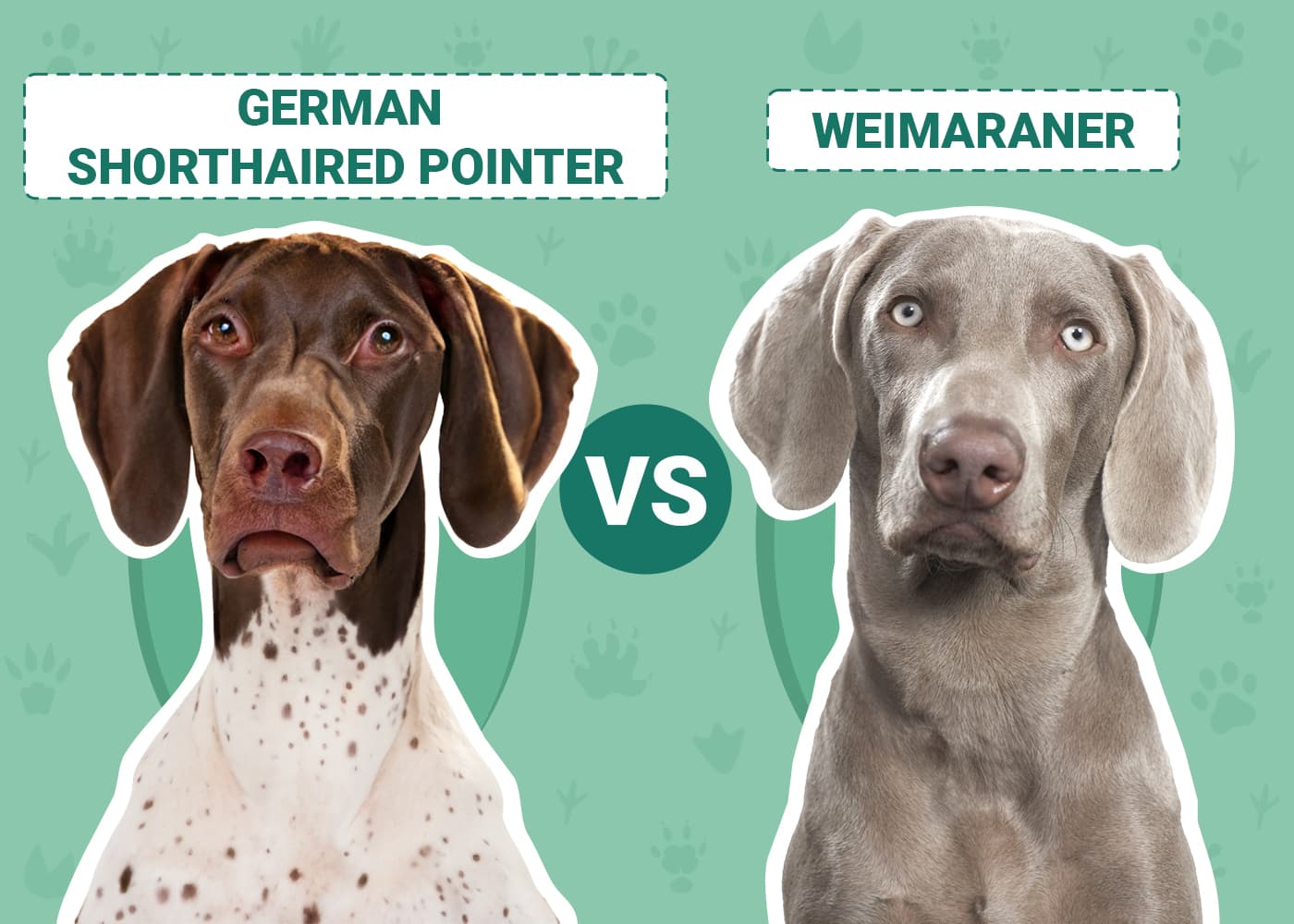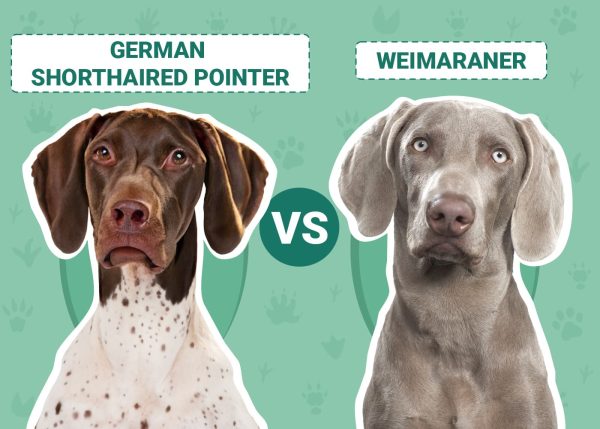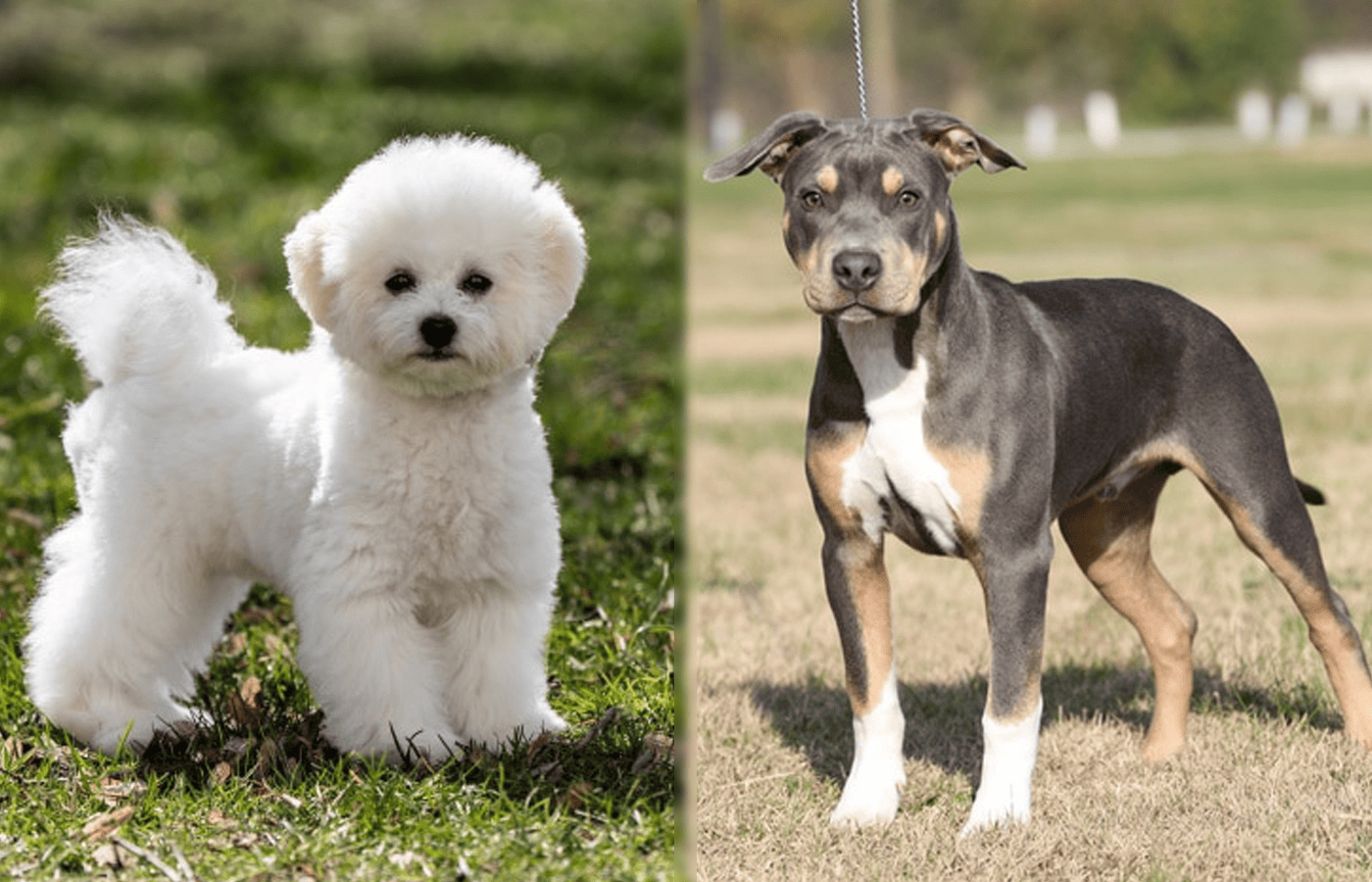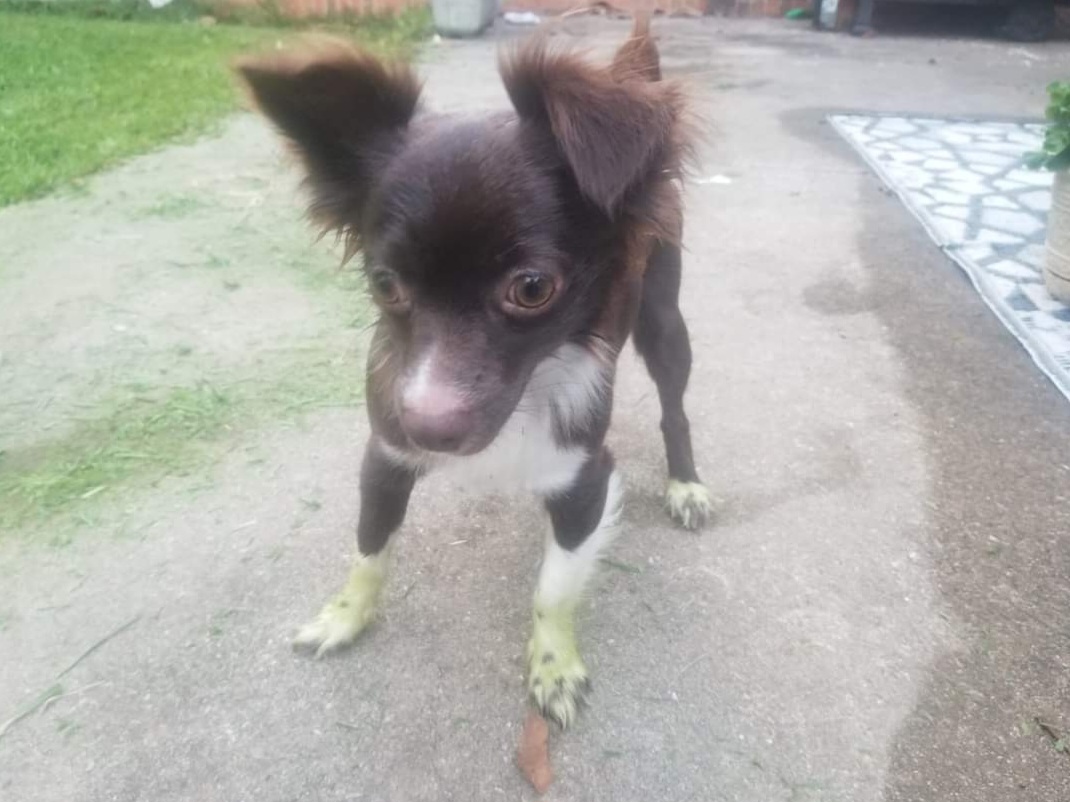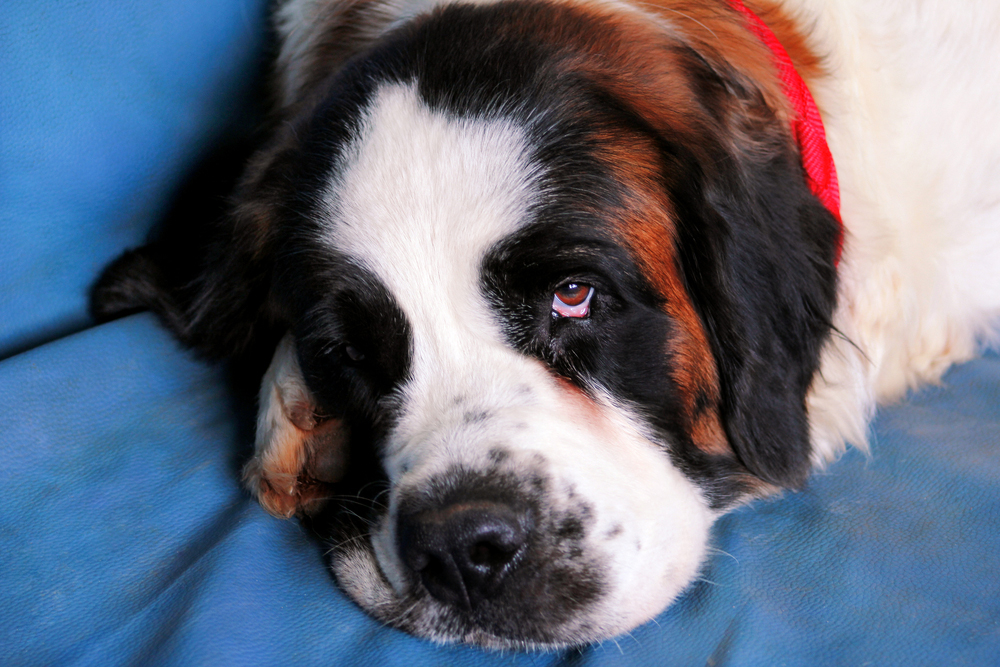Click to Skip Ahead
The German Shorthaired Pointer and the Weimaraner are two capable all-purpose gundogs from Germany that have been used for pointing, retrieving, and hunting both large and small game. As a result, they share an intense prey drive and a desire to work.
Now, these dogs make great canine competitors or companions for active owners. Despite their many similarities, there are some key differences between the German Shorthaired Pointer and the Weimaraner that you should consider.
Visual Differences
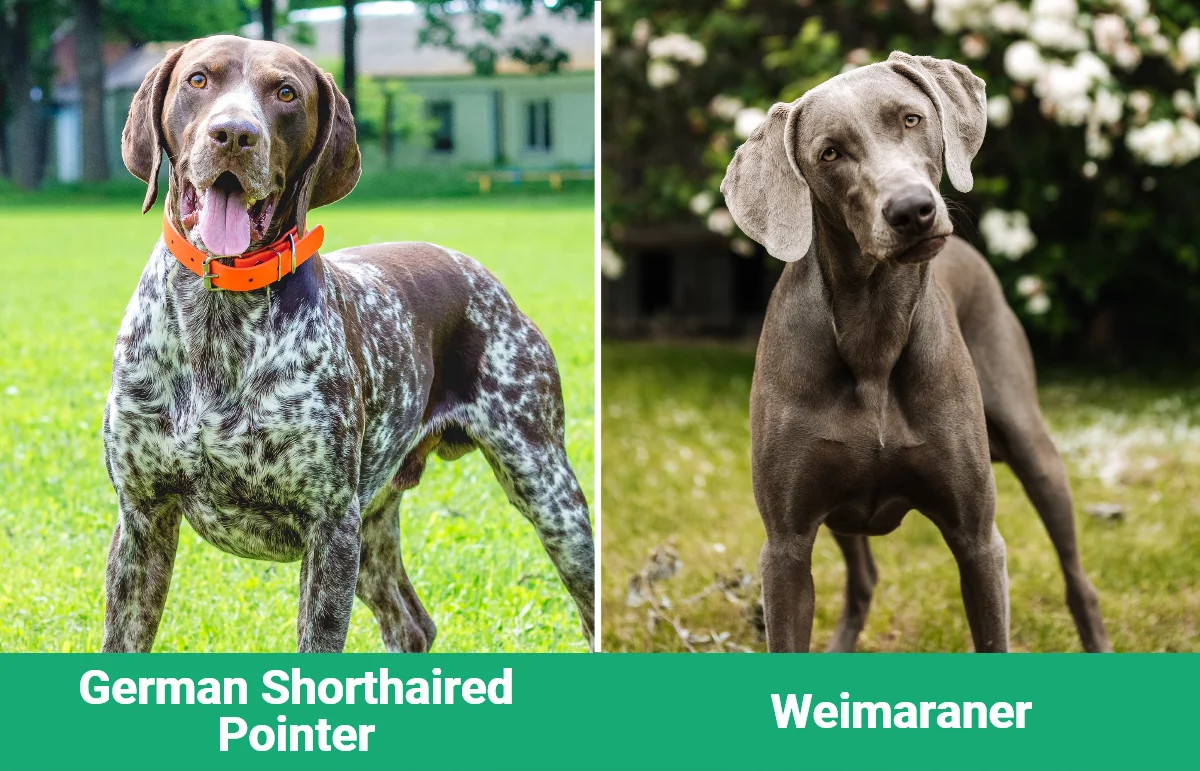
At a Glance
- Average height (adult): 21–25 inches
- Average weight (adult): 45–70 pounds
- Lifespan: 10–12 years
- Exercise: 3+ hours a day
- Grooming needs: Moderate
- Family-friendly: Yes
- Other pet-friendly: Often
- Trainability: Enthusiastic, friendly, hard-working
- Average height (adult): 23–27 inches
- Average weight (adult): 55–90 pounds
- Lifespan: 10–13 years
- Exercise: 2+ hours a day
- Grooming needs: Moderate
- Family-friendly: Yes
- Other pet-friendly: Often
- Trainability: Friendly, obedient, energetic
German Shorthaired Pointer Overview
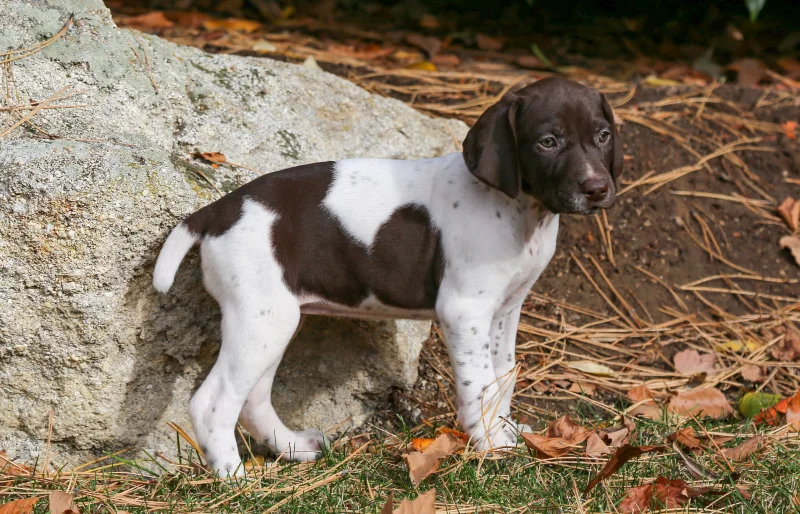
The German Shorthaired Pointer is a medium-sized gundog that’s a solid liver color or liver and white with a speckled pattern. They’re known for their hunting versatility and stamina, as well as their friendly disposition.
Personality/Character
The German Shorthaired Pointer has a friendly and agreeable personality with an eagerness to please and a desire to work hard. They’re trainable and bond strongly with family, though they aren’t especially needy. Kept as a companion dog, the Pointer must have a lot of physical and mental stimulation to stave off boredom.
Training
The German Shorthaired Pointer is an energetic and powerful all-purpose gun dog that performs as a pointer-and-retriever, an upland bird dog, and a water dog. Though the German Shorthaired Pointer has been used to hunt more dangerous game, it’s now mostly used for competition and hunting small game like pheasant, quail, grouse, waterfowl, raccoons, and possum.
With its versatile background and high energy levels, the German Shorthaired Pointer thrives with consistent training and plenty of exercise. As a puppy, the German Shorthaired Pointer can be challenging to train and control its high energy level and strong prey drive.
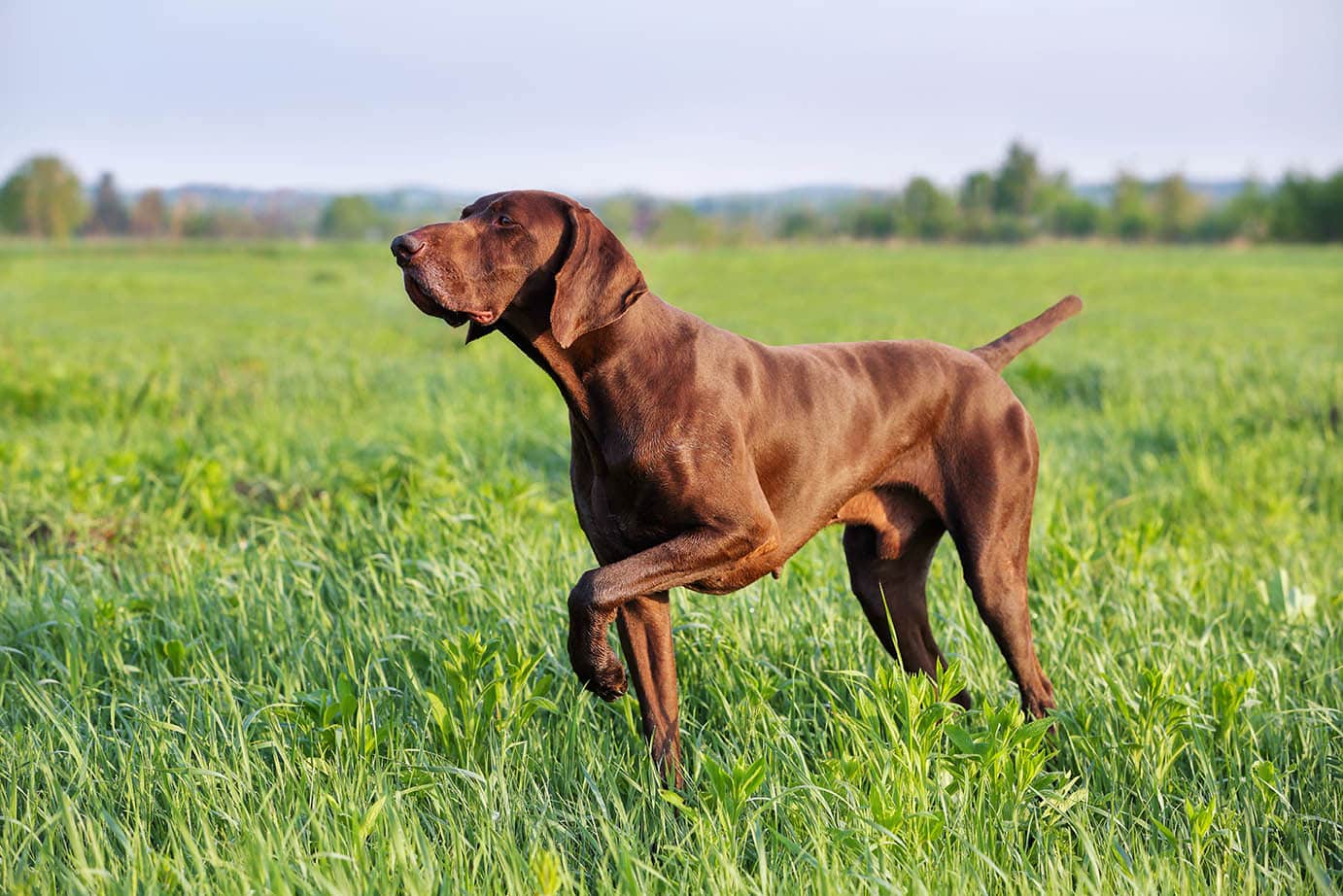
Health & Care
German Shorthaired Pointers are generally healthy dogs, but their breeding can leave them prone to hip dysplasia, certain heart diseases, and eye conditions like progressive retinal atrophy. Because of their conformation, these dogs may be prone to bloat, a life-threatening condition in which the stomach distends and may twist, requiring emergency surgery. Even if caught early, bloat can be fatal or recur.
Exercise
The German Shorthaired Pointer requires a lot of exercise and stimulation, such as running, swimming, and dog sports. They should get activity at least twice a day. If you want a dog that can perform in canine competitions, German Shorthaired Pointers are exceptional at agility, obedience, dock diving, and nose-work.
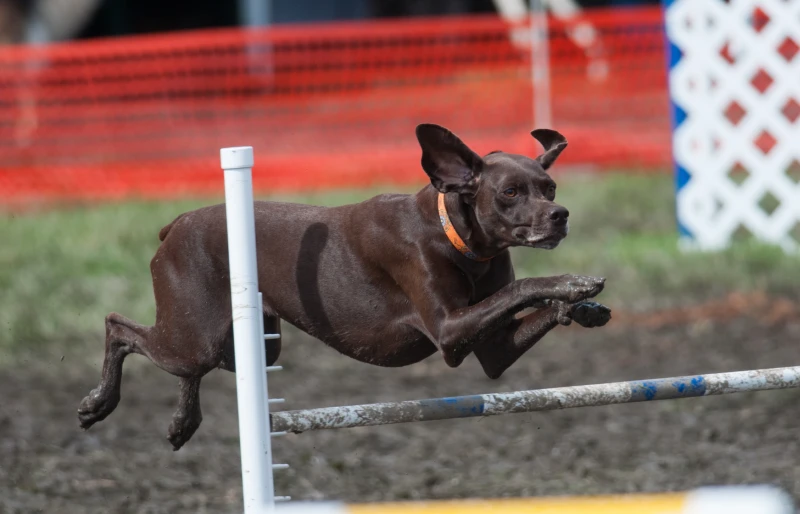
Suitable For:
German Shorthaired Pointers are exceptional hunting dogs with versatile capabilities and extremely high energy levels. While they can make good companions, they’re ideally suited to active owners who are willing to put the time in to either exercise them multiple times a day or train them for canine competitions or work. They have a high prey drive, which can create problems in multi-pet households.
Weimaraner Overview
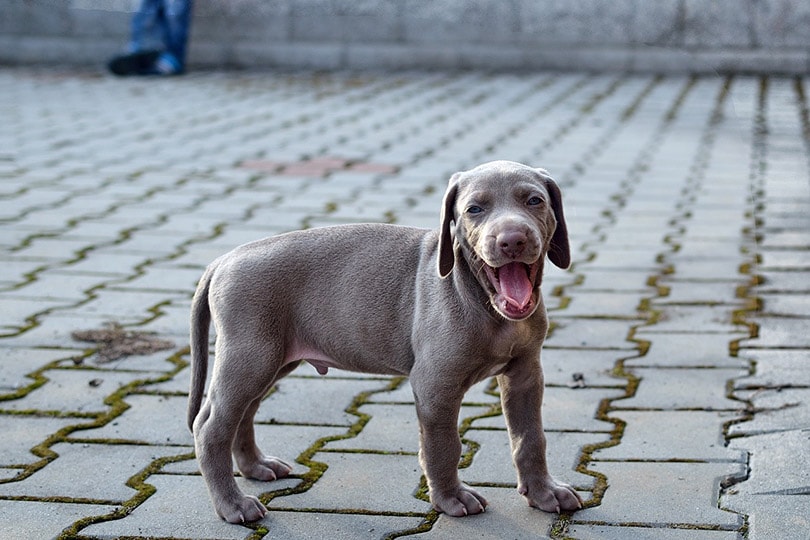
The Weimaraner, known as the “Gray Ghost”, is a large, sleek hunting dog with a silvery gray coat with minimal—if any—white markings. Its eyes are amber or blue-gray. These dogs are graceful and swift hunting dogs that excel in many roles.
Personality/Character
Weimaraners are energetic dogs that develop strong bonds with their owners. Without guidance and an outlet for its energy, the Weimaraner can become overly needy and destructive. The Weimaraner has a desire to please its owner and works very hard to excel. A gentle touch is necessary to keep these dogs happy and focused.
Because of its hunting background, the Weimaraner has an intense prey drive that can create problems with cats, small animals, or even small dogs. They’ll chase and kill any small animal that enters the yard, and it’s not safe to leave a Weimaraner with a cat unsupervised—no matter how long the two have lived together.
Exercise
Weimaraners have high exercise requirements for their physical and mental wellbeing. Brisk walks broken up into morning and evening may be sufficient, but most Weimaraners are best when they can run. These dogs were bred to have high stamina to handle long hunts with tracking, pointing, and retrieving on land and in water, so they do well when they are used for working purposes or compete in canine sports like dock diving or rally.
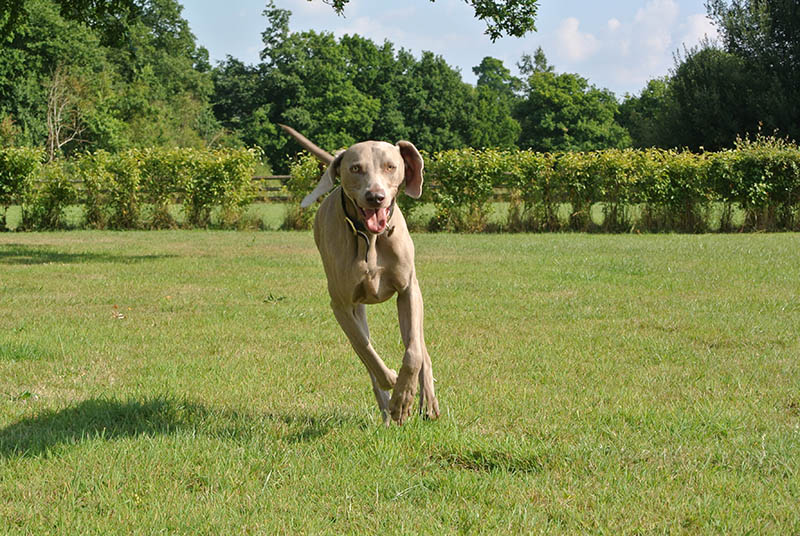
Training
Weimaraners were originally bred as hunting dogs in the 19th century. They were used by royalty for hunting large game like bear, boar, and deer, which eventually evolved into smaller game like rabbits and foxes. Now, the Weimaraner is an all-purpose gun dog with speed, stamina, strong scenting ability, and courage.
With this background, Weimaraners are intelligent dogs that learn quickly, but if you don’t have consistent training, that intelligence can backfire. They learn bad behaviors as easily as bad, and they require structure and creativity to continue learning. Early socialization and training are key to a well-adjusted adult.
These dogs are extremely needy and like to be with their owners. If they’re not given sufficient time and exercise, they can develop separation anxiety that includes behaviors like barking, whining, howling, and digging when their owner isn’t home.
Health & Care
Weimaraners are generally healthy but may have a predisposition to thyroid issues, hip dysplasia, heart conditions, eye conditions, and spinal problems. Hyperuricosuria (high uric acid and bladder or kidney stones) and hypomyelination, a condition that causes tremors during puppyhood that may persist into adulthood.
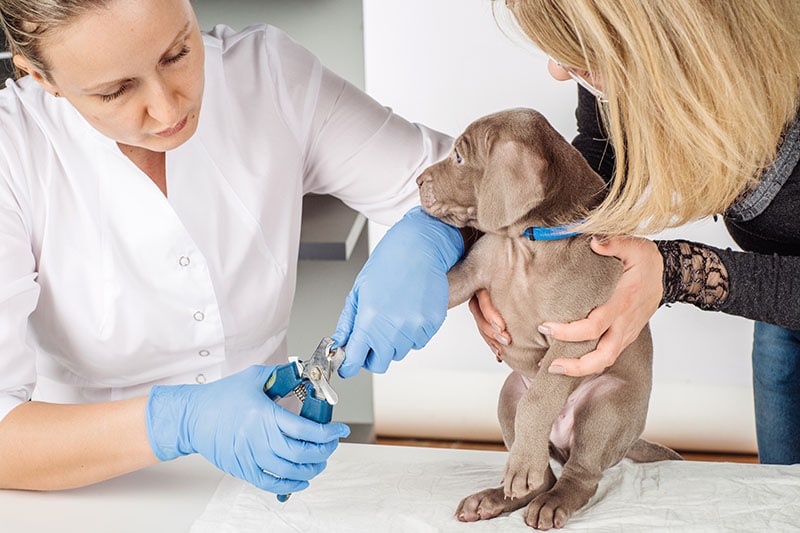
Suitable For:
Though obedient and intelligent, Weimaraners have high energy levels and need consistent, present owners to become well-adjusted adults. They’re not suited to being just a companion dog without a lot of exercise, though they do get extremely attached to their owners. Owners who travel often or spend a lot of time out of the home are not a good match for this dog, as it develops severe separation anxiety easily.
Which Breed Is Right for You?
The German Shorthaired Pointer and the Weimaraner have a lot in common, including high energy levels, versatile hunting skills, and high intelligence and trainability. While both dogs require active owners and a job to do, the Weimaraner is needier and prone to separation anxiety.
Featured Image Credit: Top – Brixiv, Pexels | Bottom – David Pegzlz, Shutterstock

